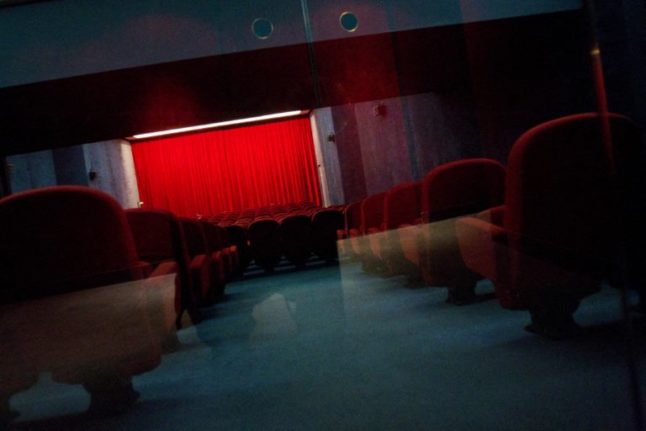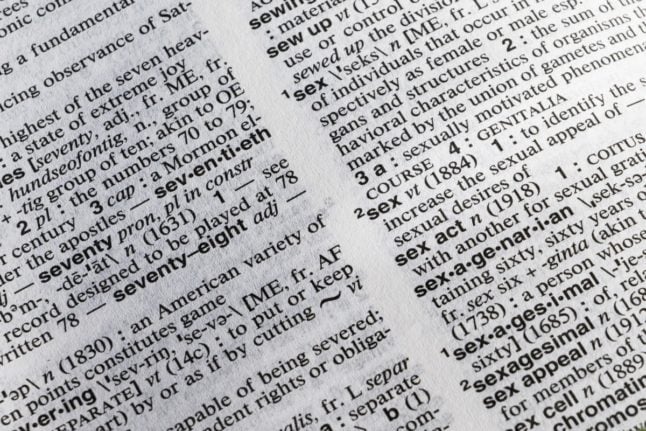Lost in Frenchlation has plenty in store for English-speakers looking to enjoy French cinema this March in Paris.
There are six films on the docket, including a rare foray into another European language, German, and two Academy Award-nominated films.
You can also subscribe to their weekly newsletter with more updates here.
Madame de Sévigné
March 8th, from 7pm to 11pm
L’Arlequin, 76 Rue de Rennes, 75006 Paris
Marie de Rabutin-Chantal, aka the marquise de Sévigné, is one of the best-known women of historical French literature. Isabelle Brocard’s film – with Karin Viard as the titular heroine – traces the story of how the marquise tried to craft her daughter into a brilliant and independent woman in her own image, but lost influence and alienated her … until history takes a turn for the devastating.
Tickets: €9.50-€12
MadameDeSevigne_FA_01_1080p24_709G24_LtRt_STA_h264 from Lost in Frenchlation on Vimeo.
Anatomie d’une Chute
March 10th, from 7pm to 11pm
Club de L’Étoile, 14, Rue Troyon
Oscar night is nominee night at Lost in Frenchlation, with Justine Triet’s multi-lingual courtroom drama the centre of attention. Sandra Hüller is the German writer who is suspected of murdering husband at their isolated mountain chalet. Milo Machado-Graner is the couple’s partially sighted son, who faces a moral dilemma as the main witness.
Tickets: €8-€10
The Zone of Interest
March 15th, from 7pm to 11pm
L’Entrepôt, 7 Rue Francis de Pressensé, 75014 Paris
Jonathan Glazer’s Academy Award-nominated (it may even be a winner by the time of this screening) German-language drama about the efforts of Auschwitz commandant Rudolf Höss, and his wife, Hedwig, to build a dream life for their family in a house and garden next to the notorious camp. Christian Friedel and Sandra Hüller star.
Tickets: €7-€8.50
Même si tu vas sur la lune
March 20th, from 7pm to 10pm
Luminor Hôtel de Ville, 20, Rue du Temple, 75004 Paris
A group of young Syrian students and refugees in Paris reflect on their current and past lives while at the country house of a university professor. Are they still who they were in Syria or have they reinvented themselves in exile?
Tickets: €7-€8.50
MSTVSLL_Trailer_EnglishSub from Lost in Frenchlation on Vimeo.
Daaaaaali!
March 24th, from 7pm to 10pm
Balzac, 1 Rue Balzac, 75008 Paris
A French journalist meets the iconic surrealist artist Salvador Dalí (the brilliant Gilles Lellouche) on several occasions for a documentary project that never came to be – expect the unexpected in a film easily as surreal as Dali’s works.
DAAAAAALI_TLR-DATE-V8_H264_1080-239_24p_FR-WEB_EN_20240112_LAB (1) from Lost in Frenchlation on Vimeo.
Tickets: €10
Le Successeur
March 28th, from 7pm to 11pm
Luminor Hôtel de Ville, 20, Rue du Temple, 75004 Paris
The new artistic director of a famous fashion house starts experiencing chest pain – and discovers that he may have inherited much worse than his estranged father’s weak heart. Marc-André Grondin stars.
Tickets: €7-€11
LE SUCCESSEUR_FA_24-422_169-2.35_ST-ANG_23123889 from Lost in Frenchlation on Vimeo.



 Please whitelist us to continue reading.
Please whitelist us to continue reading.
Member comments